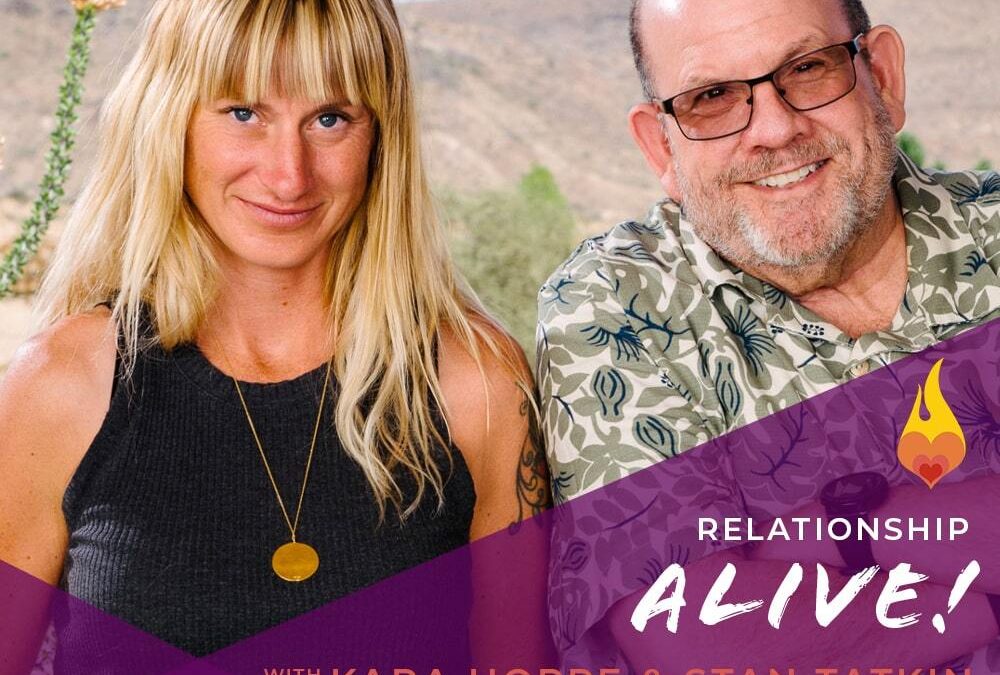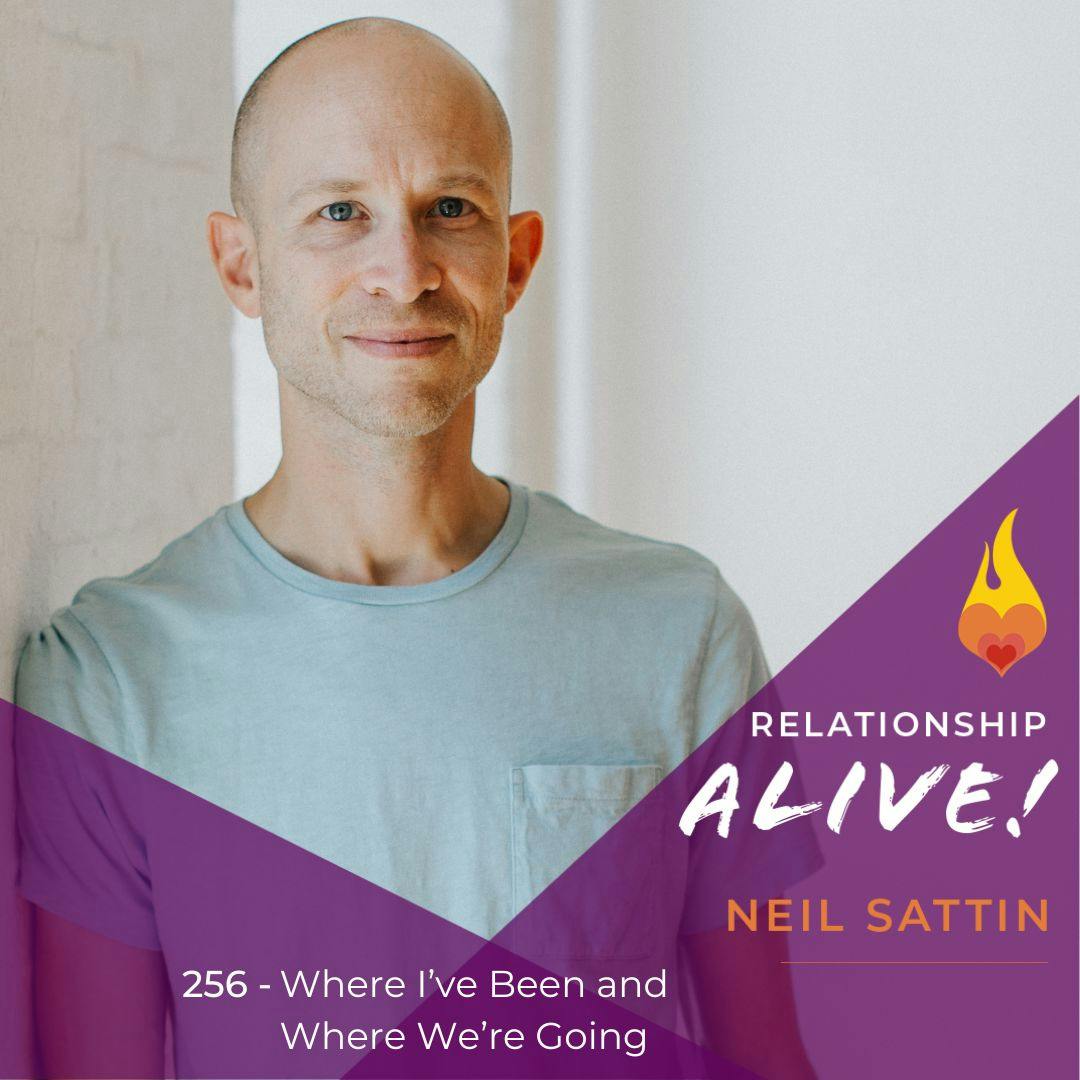How do you keep your relationship strong despite the pressures that child-rearing can create? And how can you leverage your attachment styles in how you show up for each other to improve your relationship along the way? Our guests are Kara Hoppe and Stan Tatkin, co-authors of the new book "Baby Bomb: A Relationship Survival Guide for New Parents" - one of the few books that tackles the impact that raising a child can have on your connection. Whether you're expecting a new baby, or already have children in the mix, today's episode will give you the tools you need so that you can weather the storms of parenting while celebrating its joys.
As always, I’m looking forward to your thoughts on this episode and what revelations and questions it creates for you. Please join us in the Relationship Alive Community on Facebook to chat about it! Also, see below for links to our other episodes with Stan Tatkin.
Resources:
Check out "Baby Bomb" on Amazon
Get more information about Kara Hoppe and her offerings
To learn about his trainings and retreats, visit Stan Tatkin's website
Here are links to our other episodes with Stan Tatkin (prior to this one):
Episode 19: Recipe for a Secure, Healthy Relationship
Episode 50: Wired for Dating and Love - Psychobiology
Episode 150: Attachment Styles and Relationship Repair
FREE Relationship Communication Secrets Guide - perfect help for handling conflict and shifting the codependent patterns in your relationship
Or...check out the Secrets of Relationship Communication complete course!
Guide to Understanding Your Needs (and Your Partner's Needs) in Your Relationship (ALSO FREE)
Visit http://www.neilsattin.com/baby to download the transcript to this episode with Kara Hoppe and Stan Tatkin.
Amazing intro/outro music graciously provided courtesy of: The Railsplitters - Check them Out
Transcript of this episode:
Neil Sattin: I think we've either seen it happen or maybe even experienced it ourselves, that the addition of a new life, a new being to a family can create big changes, and some of those changes are amazing and wonderful and life-enhancing, and some of those changes can feel almost cataclysmic. And so we are here today to talk about how to navigate a new edition to a family, whether it be a baby or adopting an older child, or even if you've had children in your life for a while and experienced the impact of children on your relationship. We're going to talk about how to steer your couple-ship in a way so that you can strengthen your relationship and strengthen with each other and with your children, and hopefully have a little bit more joy and a little less cataclysm. To have today's conversation, we have two very special guests: one is Kara Hoppe, who is a marriage and family therapist. And the other is Stan Tatkin who you may be familiar with from being on the show before, the author of, Wired in love and Wired for Dating among other books.
Neil Sattin: And together they have written the book, Baby Bomb: A Relationship Survival Guide for New Parents. Because as we were chatting about before this interview started, there aren't many resources to help people not just navigate what's going on with a new baby, but actually navigate how that impacts their relationship and how to have a strong relationship, despite all the ways that the new addition or additions to your family might make the waters a little rocky. I don't know why I'm going with the boat metaphor today, but it's happened. [laughter] Kara Hoppe and Stan Tatkin, it's a pleasure to have you here today on Relationship Alive.
Stan Tatkin: Thank you, Neil.
Kara Hoppe: Happy to be here.
Neil Sattin: Great, well, we're off to a good start. [laughter] So I sometimes like to do this, which is to start at the end, and in your book, Baby bomb, which is great by the way. You offer 10 guiding principles for how to help couples stay strong in their relationship, despite however having a child in their life may be impacting the relationship. And at the very last guiding principle that you have, I'm going to just read it verbatim here, I think I dog eared the page. Guiding principle 10: You and your partner parent and partner with sensitivity, respect and trust. And I wanted to start there because, for one thing, I'm not even sure people necessarily nail that down before a child comes along.
Kara Hoppe: Right.
Neil Sattin: And so much of getting things strengthened and resilient has to do with those very things, so I'm wondering if you can talk a little bit about why those things are so important, sensitivity, respect and trust. And why their absence might lead to some of the common things that people experience when a new edition actually throws things into chaos.
Kara Hoppe: Yeah, Neil, I love it that you started at the end, the last guiding principal. And I immediately when you were saying it, was thinking about the beginning of parenthood, when two people become parents, neither one of them really know what they're doing. They've never done it before. No aunt or uncle or godparent experience speaks to that. And so they're both learning in tandem how to do this, so it's a really vulnerable experience. So having that respect and sensitivity and trust in themselves and in their partner as they learn how to do this is so critical, right? I'm thinking about when we brought Jude home from the hospital, neither one of us knew how to burp him. And it's such a simple thing, but I didn't know how to burp a baby, nobody had taught me before. And I remember watching Charlie do it and feeling in my body like, Oh God, like fear and wanting to jump in. But then pausing 'cause I wanted to give him, the respect, like he was giving me the respect to learn how to do it. And all of that increased our participation in showing up for our son Jude, but it also made our relationship feel like a safer place for both of us to kind of fumble around learning how to be parents together and be witnessed as parents together.
Neil Sattin: Yeah. Yeah, so much of what you talk about in the book has to do with battling in some ways the cultural expectations that we have, and I think some of that includes this assumption that you're somehow going to know what to do.
Kara Hoppe: What they need. Right.
Neil Sattin: And so I appreciate your highlighting that it's a very vulnerable act to suddenly have a child in your arms. Or If you're a step-parent, to find yourself with an older child potentially in front of you and to not necessarily know what to do. There are all these ways that we're fighting internal messages that we've gotten from culture, from family, etcetera.
Kara Hoppe: Right. That idea of the maternal instinct kicking in. Like, yes and maternal instinct doesn't cover burping, it doesn't cover putting on diapers, it doesn't necessarily cover even breastfeeding. All of that has to be taught in real time, learning how to do it. And so there can be a lot of internal pressure because of that external pressure that if I don't know what I'm doing, I'm somehow failing, and that can be asseverated of course, we know like partners doing that to each other. And like, "Come here, I'll take the baby, I know how to do this." And just cutting each other down. And what Stan and I really wanted to do with Baby Bomb was to help people recognize the importance of supporting each other during this vulnerable experience and how they could do that with really practical ways, and we just wrote the book to walk people through that journey of how to show up for their relationship that way.
Neil Sattin: Yeah. So lest we make any assumptions here about what sensitivity, respect and trust mean, can we do just kind of a quick breakdown of what you mean by sensitivity, what you mean by respect, what you mean by trust?
Interested in reading the transcript for the rest of this episode with Kara Hoppe and Stan Tatkin?


